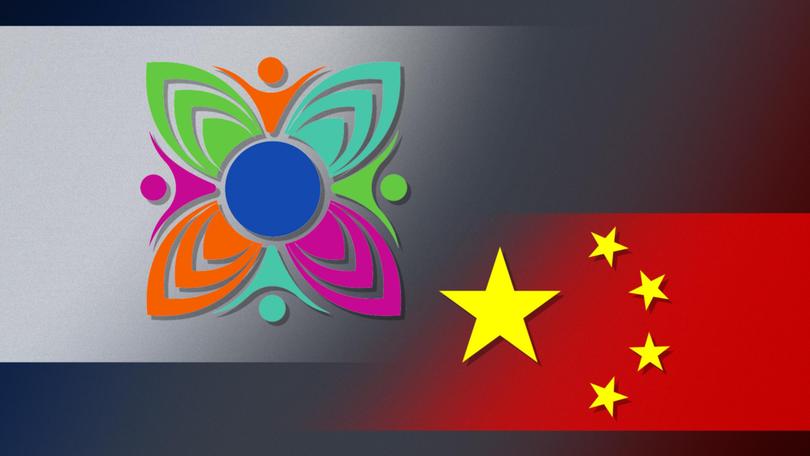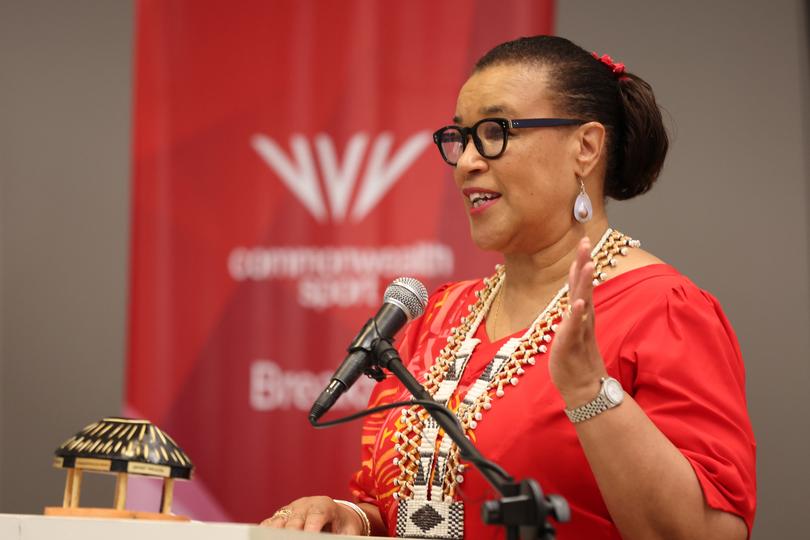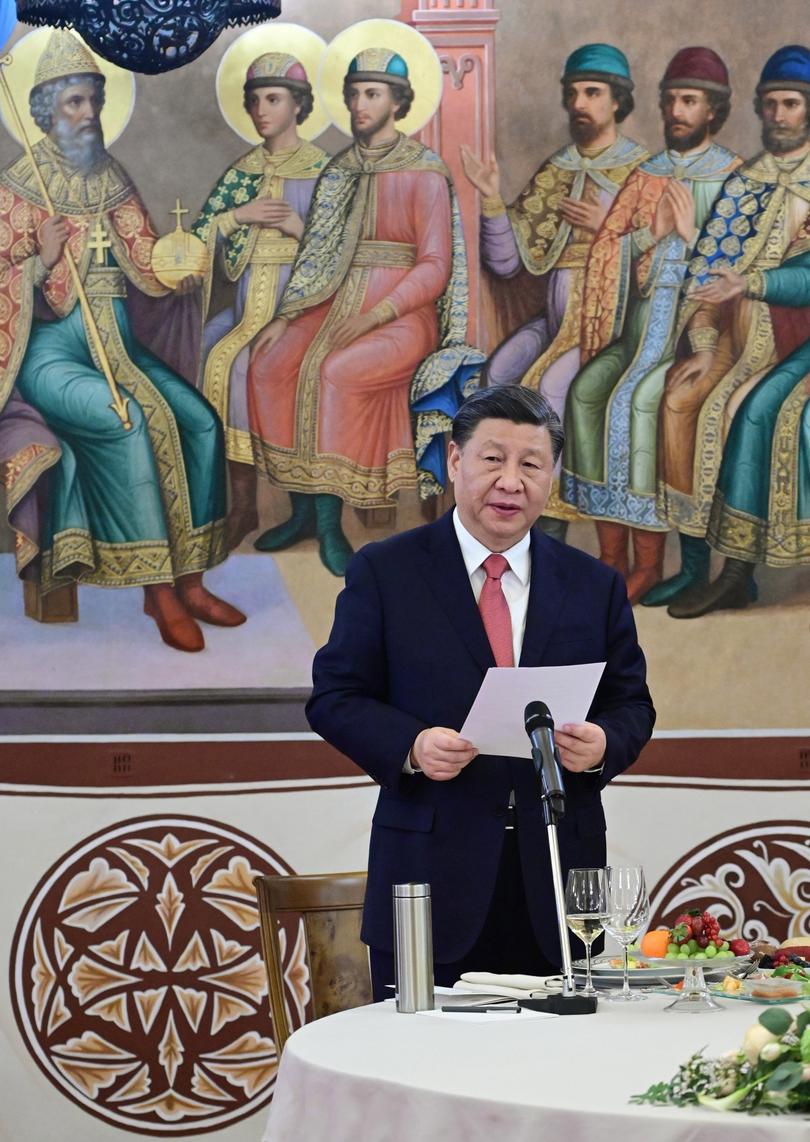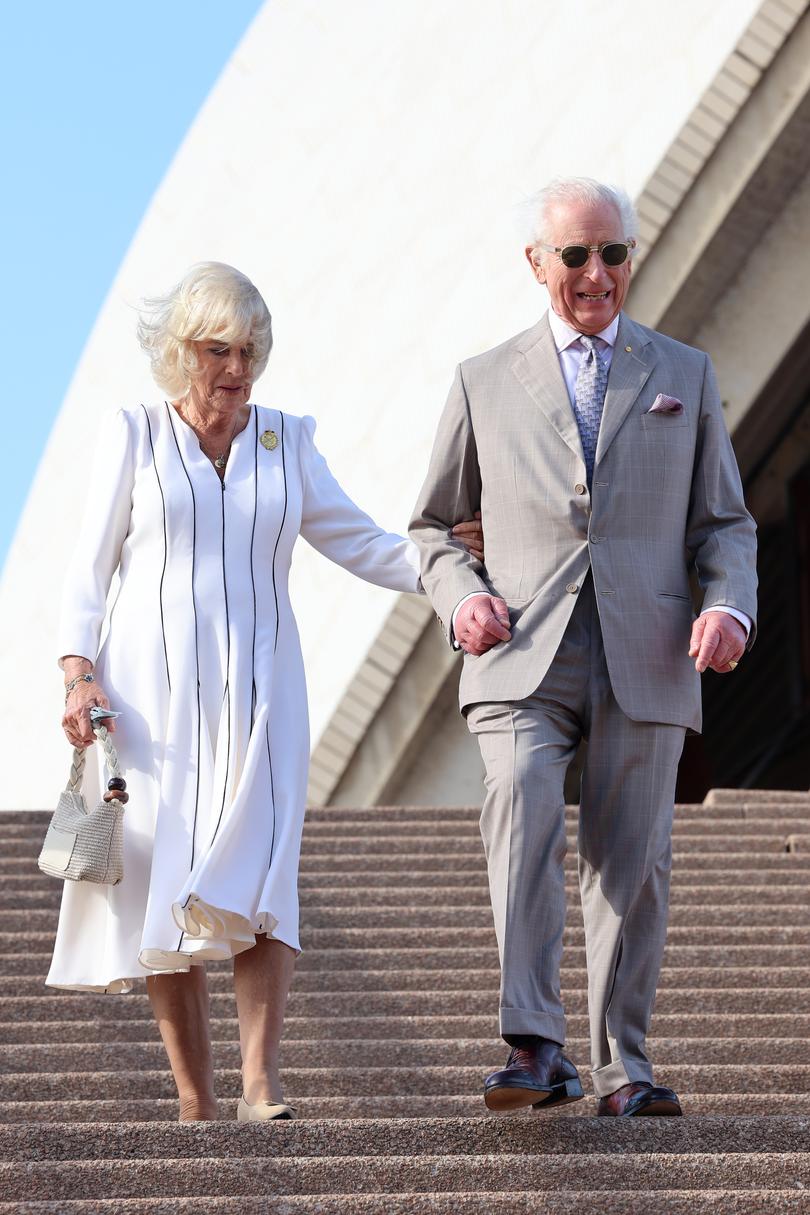Secretary-general candidate Shirley Botchwey says Commonwealth shouldn’t be involved in countering China
As CHOGM kicks off in Samoa, a candidate to be the Commonwealth’s next Secretary-General warns against trying to contain the Pacific superpower.

One of the candidates vying to be the next Secretary-General of the Commonwealth says any attempt to counter Chinese influence amongst member states would be violating sovereignty and poking its nose where it’s not needed.
Ghana’s former foreign minister Shirley Botchwey, who has praised Xi Jinping’s outstanding leadership and described China as Africa’s true and reliable friend, is one of the three contenders vying to replace Patricia Scotland as head of the London-based Commonwealth Secretariat at this week’s Commonwealth Heads of Government meeting in Samoa.
The other two contenders are Gambia’s former foreign minister Mamadou Tangara and Joseph Setipa, former trade minister of Lesotho.
Sign up to The Nightly's newsletters.
Get the first look at the digital newspaper, curated daily stories and breaking headlines delivered to your inbox.
By continuing you agree to our Terms and Privacy Policy.Asked by The Nightly if the club, which cites democracy as a founding principle, should play any role in countering China, Ms Botchwey said it was not a good idea to talk about containing China.
“Let’s not involve the Commonwealth Secretariat in something like that,” Ms Botchwey said at an event at the London-based foreign policy think tank Chatham House.
“Because it will be violating sovereignty.
“And poking its nose where it’s not needed.”

Ms Botchwey said that some of the Commonwealth’s members had decided to engage with China.
“And they have very good reasons why they do that,” she said.
“I believe the best that the Commonwealth can do is to give them the tools to be able to negotiate very well.
“But apart from that, I do not see how the Commonwealth can influence a country’s relationship with China, because these are sovereign countries.
According to a 2022 Chinese foreign ministry readout, Ghana’s then-foreign minister said her nation “cherishes” its friendship with China and that after the COVID-19 pandemic, “African countries have realised more clearly that the world is unfair, the development is unbalanced, and China is Africa’s true and reliable friend.”
She praised Chinese President Xi’s “outstanding leadership” and on Taiwan, said Ghana “firmly adheres to the one-China principle.”
China’s Foreign Minister Wang Yi said China and Ghana should “jointly oppose hegemonism and power politics,” which is the way Chinese Communist Party’s way of referring to the United States.

Mr Tangara said in response to the same question that it was for individual countries to choose how they dealt with China.
“I don’t think we should be in a logic of trying to counter the influence of a country or an organisation,” he said.
“The Commonwealth should try to make sure that it has more influence than trying to compete with another country or another organisation.”
Mr Setipa was the only candidate who raised concerns about Chinese interference.
“I also agree with a point that these are sovereign independent states sitting around the table and therefore, they have the liberty to decide their bilateral relations,” he said.
“It becomes a Commonwealth issue if those relationships begin to undermine the Commonwealth.
“So, as Secretary-General, I would stay away from that, unless it creates a direct challenge to the implementation of the Charter.
“Then it becomes a Commonwealth issue.”
This year’s leadership contest comes amid intensifying competition between the United States and China and the West’s battle to retain influence in the so-called Global South countries, many of which are in the Pacific and Africa and are members of the Commonwealth.
China has been aggressively pursuing closer diplomatic and economic ties with African nations.
In last month’s Beijing Declaration, China agreed to pour billions of dollars into investments and financing for African nations, including a $210 million grant to train Africa’s armed forces and police that will involve 500 military officers travelling to China to take part in joint training and exercises.
Justin Bassi, head of the Australian Strategic Policy Institute, a hawkish think tank in Canberra, said it was a fantasy to suggest the Commonwealth could opt out of geopolitics.
“The Commonwealth Charter refers to a commitment to the development of free and democratic societies,” he said.
“Leaving nations to be bullied and preyed upon by China or Russia is not consistent with the charter.
“Supporting smaller nations in the face of foreign interference, cyber attacks, disinformation and debt traps isn’t a breach of their sovereignty but a vital maintenance and strengthening of it.
“The idea that groups like the Commonwealth can hide from strategic competition is a fantasy – you can’t say we want more influence than another country or group which doesn’t share your principles and objectives but then say you will not compete with them.
“And choosing to be ‘neutral’ at best consigns groups like the Commonwealth to insignificance but at worst offers China the potential to use such groups as tools of influence and propaganda to further their malicious aims.”
Former Australian foreign minister and High Commissioner to the UK Alexander Downer said the Commonwealth could play an important and indirect role in helping to counter Chinese influence but that it would require leadership from the British in step with the Australian, Canadian and EU members Malta and Cyprus.
“They don’t have to talk about China per se but they could give it more shape and more structure and more purpose than it currently has,” he said.
“So have a security dimension to the Commonwealth and particularly have a trade and investment dimension included into the Commonwealth.
“Then its role will automatically be a role where it helps to offset the power of China.”
He said this could include hiring financial sector professionals to give developing countries advice on how to manage Chinese loans. “Then the effect of that will be gradually to offset the influence and power of China but you won’t do it by being too explicit about it,” Mr Downer said.
Earlier this year, The Nightly revealed the case of the Solomon Islands MP Peter Kenilorea Jr who was criticised by his government for travelling to Taiwan – the self-ruled democratic island that China claims as its own and wants to control, by military force if necessary.
At the time, The Nightly approached the outgoing Commonwealth Secretary-General Ms Scotland for comment but she declined interviews.
Tess Newton Cain, a specialist on the Pacific from Griffith Asia Institute said the candidate’s views reflected the limitations of what the Commonwealth could achieve.
“Ms Botchwey’s comments strike me as both appropriate and pragmatic,” Dr Newton Cain said.
“The Commonwealth can provide a space in which leaders of countries that have been dragged into a geopolitical competition not of their making can engage without the looming presence of either China or the US.”

The winner will be elected in a secret straw poll by leaders at CHOGM in Samoa this week. The Australian Government will not state which candidate it will support, despite making clear its opposition to outgoing head Baroness Scotland’s governance at the last CHOGM.
While not formally on the agenda, the issue of reparations is expected to be a hot topic with all three candidates backing reparations to compensate for the legacy of colonialism and slavery — something Britain’s new Labour Prime Minister Keir Starmer has already ruled out.
This year’s candidates all come from Africa because it is the region’s turn to lead the member organisation comprising 56 countries that critics say is a colonial hangover and achieves little. Supporters say it works to uphold democracy in less developed states.
It is the first CHOGM to be held in the Pacific and the first to be attended by King Charles as well as Prime Minister Anthony Albanese, who snubbed the last gathering in Rwanda and sent his deputy Richard Marles instead.
Baroness Scotland, a Labour peer, lost the support of the Australian, British and New Zealand governments which, at one stage, pulled funding from the Secretariat over concerns about her governance style.

